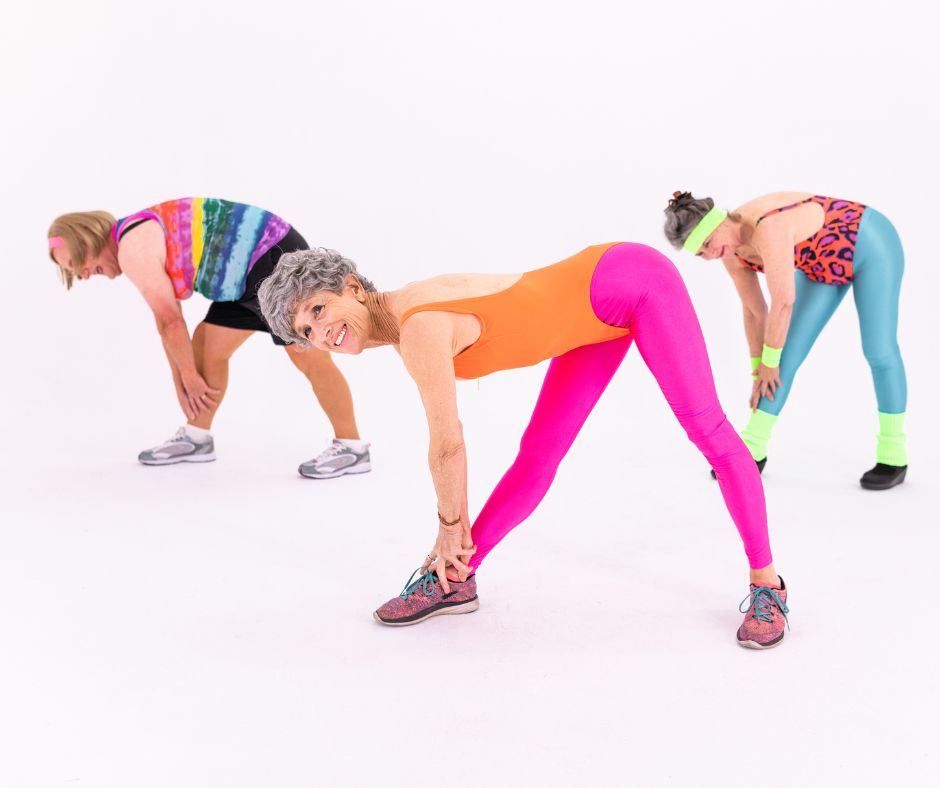
Have you found yourself with more aches, pains and stiffness as you get older? Do your joints creak when you get up in the morning?!
These kinds of symptoms are particularly common for women in peri menopause and beyond.
Looking after your joints pre and post menopause is super important and I have lots of tips that will help.
First off, find out via your GP if you have any underlying conditions including arthritis. Often it’s just generalised aches and pains but it’s good to know your starting point. Then it's time to focus on your diet!

How do your joints work?
Joints are junctions between two bones. Your joints have protective packaging around them to protect them from damage:
- Cartilage – a soft, moist cushion of tissue between two bones. It holds your bones together and prevents friction during movement
- Ligaments – tough bands which hold your joint in place
- Tendons – bands that attach your muscles to your joints which allow movement
- A fluid filled space between the bones which acts like a cushion
What happens to your joints in peri menopause?
- Reduced levels of oestrogen in menopause affect the quality of collagen. Cartilage, ligaments and tendons as well as your bones all contain collagen. When collagen shrinks it affects your joints
- Oestrogen is anti inflammatory so declining levels may provoke inflammation
- Oestrogen regulates fluid levels in your body. Less oestrogen may make you more prone to dehydration which has many effects on your body, not least on your joints. The synovial fluid which has a cushioning effect between your joints and cartilage contain a lot of water. Ligaments and tendons also need water to maintain their flexibility and elasticity
- Hot flushes can further dehydrate you, particularly at night
So what can you do about it? Here are some tips.
Nutrition tips to support healthy joints
- Keep your weight within a healthy range. Being overweight puts pressure on your joints
- Make sure you include plant oestrogen containing foods in your diet. These plant oestrogens are similar, albeit weaker than, the oestrogen in your body. Examples are chickpeas, parsley, olives, edamame beans, pumpkin seeds, mung beans, split peas, seaweed (e.g. nori flakes) and flaxseeds (must be milled for digestibility) which make a lovely, crunchy topping for yoghurt or smoothie bowls
- Focus on foods with anti inflammatory properties such as fresh ginger added to a tea, cold pressed oils such as linseed on salads and pineapple and turmeric. Eat Omega 3 fats from oily fish or consider a pure fish oil supplement (if you are on blood thinning medication you should consult your doctor first)
- Eat a rainbow of fruit and vegetables which supply plentiful antioxidants. Buying as many different coloured ones as possible means you get a broad spectrum of all the many different, beneficial plant chemicals. This means they help reduce inflammation and joint wear and tear
- Reduce sugar and refined carbohydrates – diets high in these foods have been shown to trigger inflammation
- Vitamin C is not only a powerful antioxidant, it is also needed to make collagen. It should be your store cupboard essential! Choose a "buffered" vitamin C which will be less acidic than other forms and less likely to cause gastric upset. Don’t be confused by the name (calcium ascorbate). It is vitamin C (ascorbic acid) + calcium (buffer)!
If you need help getting back on track with your diet or tackling it for the first time, check out my one to one nutrition programmes
It can be hard doing it by yourself. Why not get dietary and supplement recommendations personal to you. As well as accountability and support on your journey!
More Tips
- Drink more water. How many times do we hear we should be drinking more water?! You may not have heard it in relation to helping your joints though. Dehydrated joints are more likely to be stiff joints. And it’s even more important if you are getting hot flushes. Drink a glass of water before bed and see if it helps reduce aches and pains on waking. Water has so many other health benefits, it’s really worth the effort to get your daily 1.5 litres in
- Stress management - stress is known to be linked with inflammation. Tension causes your muscles to tighten up which makes your joints work harder. This causes discomfort and over the long term may even pull your joint out of place
- Epsom salt baths are an age old remedy for aches and pains. Epsom salts contain magnesium which relaxes your muscles. Indulge yourself by adding the salts to warm bath water with a few drops of essential oil such as lavender
- I’m a great fan of osteopathy for relieving stressed muscles and realigning your spine. A good osteopath will spend time getting to the root cause rather than making a few clicks or massaging over the problem. I highly recommend Helena Bridge at Putney Osteopaths.
And don't forget to check out my one to one nutrition programmes to help support healthy joints and weight loss or email me penny@nutritionistlondon.co.uk.
